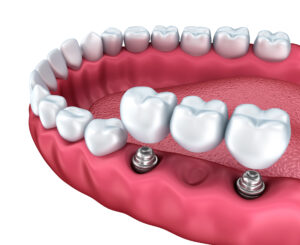
For decades now, the medical community across the globe has been telling us to exercise. I am sure you have heard this instruction more than once: adults need 20–30 minutes of moderate exercise every day. But what is the rationale behind this recommendation, and how can it help those managing problematic sexual behaviors (PSB)?
As a mental healthcare provider, today I would like to explain exercise in recovery – from the immediate effects it has on our body to how it can boost our mental resilience in the face of problematic compulsions.
The Biology of Exercise
Right off the bat, exercise boosts the heart and lung function, which we know is vital for improving cardiovascular health and overall endurance. At the same time, it triggers the release of neurotransmitters like endorphins, dopamine, and serotonin. Endorphins, often called “feel-good” or “happy” hormones, act as natural painkillers, while dopamine and serotonin are key players in maintaining emotional balance.
Along with these changes, physical activity helps lower levels of cortisol, the body’s primary stress hormone. Research has shown that higher levels of cortisol can lead to more emotional turbulence and for those in PSB recovery, all that can trigger strong urges. By exercising, we naturally push down these levels, managing our stress and controlling our compulsions.
Exercise as a Coping Mechanism
Given the immediate effects of exercise, it’s no surprise that physical activity serves as an excellent distraction. When you focus on movement, you are preoccupied with the sensations and goals of your workout. This means intrusive thoughts have a harder time getting in. This shift helps break the cycle of obsessive thinking and the intensity of cravings related to PSB.
By incorporating exercise into your daily life, you create structure and predictability. For individuals recovering from PSB, such a routine fosters a sense of control and stability. Not only does it ensure a better way to spend time, but it also reinforces positive habits that keep you progressing forward.
An interesting benefit of exercise is how it is linked to sleep. Studies have proven that consistent physical activity improves both the quality and length of rest, which is crucial for several reasons. Firstly, quality sleep is vital for your body to restore any damage, replenish energy levels, and support immune function. Secondly, it allows your mind to process and consolidate emotions and memories. This means better cognitive function, emotional regulation, and overall well-being. Finally, improved sleep can weaken the hold of PSB triggers, making them less impactful on your behavior.
Connections and Confidence
If we look beyond these biological benefits, exercise has unique social and psychological perks. For example, participating in group activities like fitness classes or team sports presents a chance for social interaction. Through a shared interest, you can build connections with others and even lasting friendships. This camaraderie can be a game-changer for decreasing the feelings of isolation and loneliness that often come with PSB.
Yet, perhaps the most exhilarating benefit of all is the impact exercise has on your confidence and self-esteem. There’s something incredibly satisfying about seeing your body get stronger, shed some weight, and achieve those fitness milestones. Despite the struggles and setbacks, you’ve pushed through and made real progress.
This isn’t just about looking good – although that’s a nice bonus. Exercise in recovery about feeling empowered and capable. This newfound confidence is a powerful boost that can fuel your ability to tackle other recovery challenges with a fresh, determined mindset.
Practical Tips for Incorporating Exercise into PSB Recovery
With the benefits of exercise clear, let’s tackle the biggest hurdle: fitting it into your life. It might seem like there’s no time to squeeze in a workout or hit the gym, but you can make the time. Here are a few practical tips for fitting exercises in recovery:
- Start Small:Begin with short, manageable workouts, such as a 10-minute walk or a quick home workout. Then, as you find your flow and increase your stamina, gradually increase the duration.
- Schedule It:Treat exercise like any other necessary appointment. Set a specific time each day for physical activity and add it to your calendar or alarm to help build a consistent routine.
- Find Activities You Enjoy: Exercise does not have to be 30 minutes of sweating in a gym. It can be anything that increases your heart rate, so do something you find enjoyable or interesting. Whetherdancing, hiking, or swimming, picking things you like will make it far easier to stick with your routine.
- Set Realistic Goals: Change does not happen overnight with exercise. It will take time before you see any progress. Remember that when you are setting your goals. Look for manageable improvements and celebrate small victories along the way to stay motivated.
- Keep Moving: Throughout the day, look for opportunities to add movement. Maybe you take the stairs or pump out a dozen jumping jacks during a commercial break. Just move because some movement is better than none.
- Use Technology: So many fitness apps and online workout videos are now available that you don’t need a pricey gym membership to get started. Explore these resources and tools to find a workout routine that works with your lifestyle.
When in doubt, look for integrated treatment programs. For example, I combine exercise with traditional therapeutic approaches in my practice for a more holistic PSB recovery program. You can do the same by similar options with a mental health professional. Remember to consult a medical doctor before starting any new exercise routine.
Final Thoughts
From neurochemical changes in the brain to improvements in stress management, emotional regulation, and social support, exercise plays a vital role in fostering physical and mental well-being. I genuinely believe that for those on the path to healing, exercise in recovery is 100% worth the effort. Not only does it complement every other therapeutic intervention, but it also amplifies its effects. So embrace a regular exercise routine and see it change your life as you regain control.
At Paradise Creek Recovery, we provide residential treatment programs specifically designed for men dealing with problematic sexual behaviors, all within a safe and supportive environment. Our holistic approach is customized to meet your unique needs, guiding you toward a meaningful and lasting recovery. If you or someone you care about is facing challenges with problematic sexual behaviors, contact us today at (855) 442-1912 or email paradisecreekmanager@gmail.com to discover how we can help.





